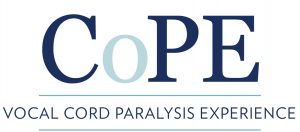
Patients with unilateral vocal cord paralysis have profound mental and physical health effects that limit everyday activities and demonstrate variable responses to treatment due to unique patient characteristics and baseline disability. Our ongoing CoPE project addresses the need to individualize how we assess treatment effectiveness using patient-reported outcome measures (PROM) at the point of care by using an innovative statistical machine-learning approach that accounts for the value the individual patient puts on outcomes related to voice, psychosocial, and swallowing.
To accomplish this, we are conducting a survey study funded by the National Institutes of Health (NIH) that consists of two user-friendly surveys over a 3-month period. These surveys ask patients to answer questions about their medical history and how the symptoms of vocal cord paralysis have affected their lives before and after treatment. The surveys were launched in Fall 2024 across the CoPE Collaborative, a group of nearly 50 Academic Medical Centers located across the United States.